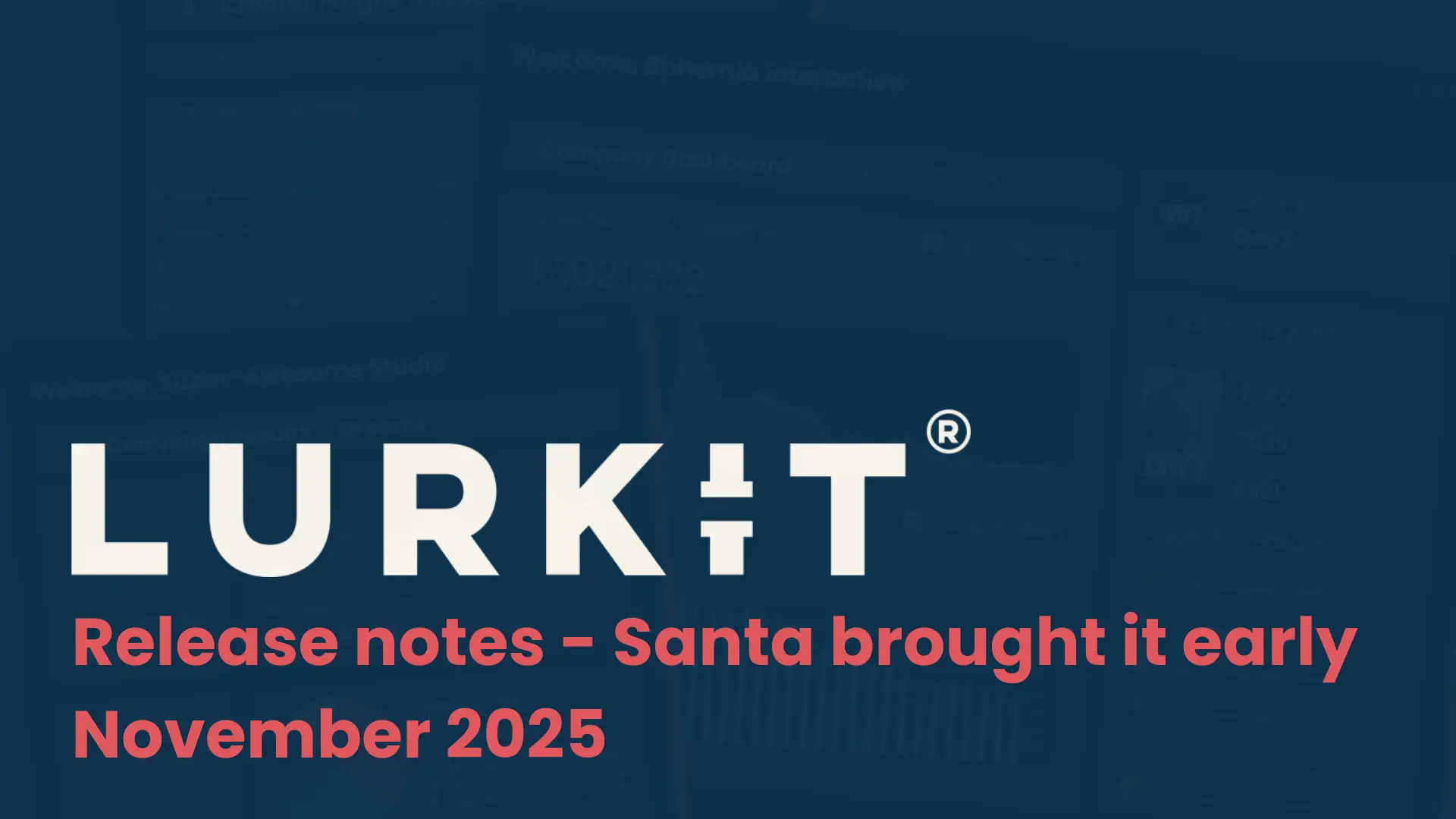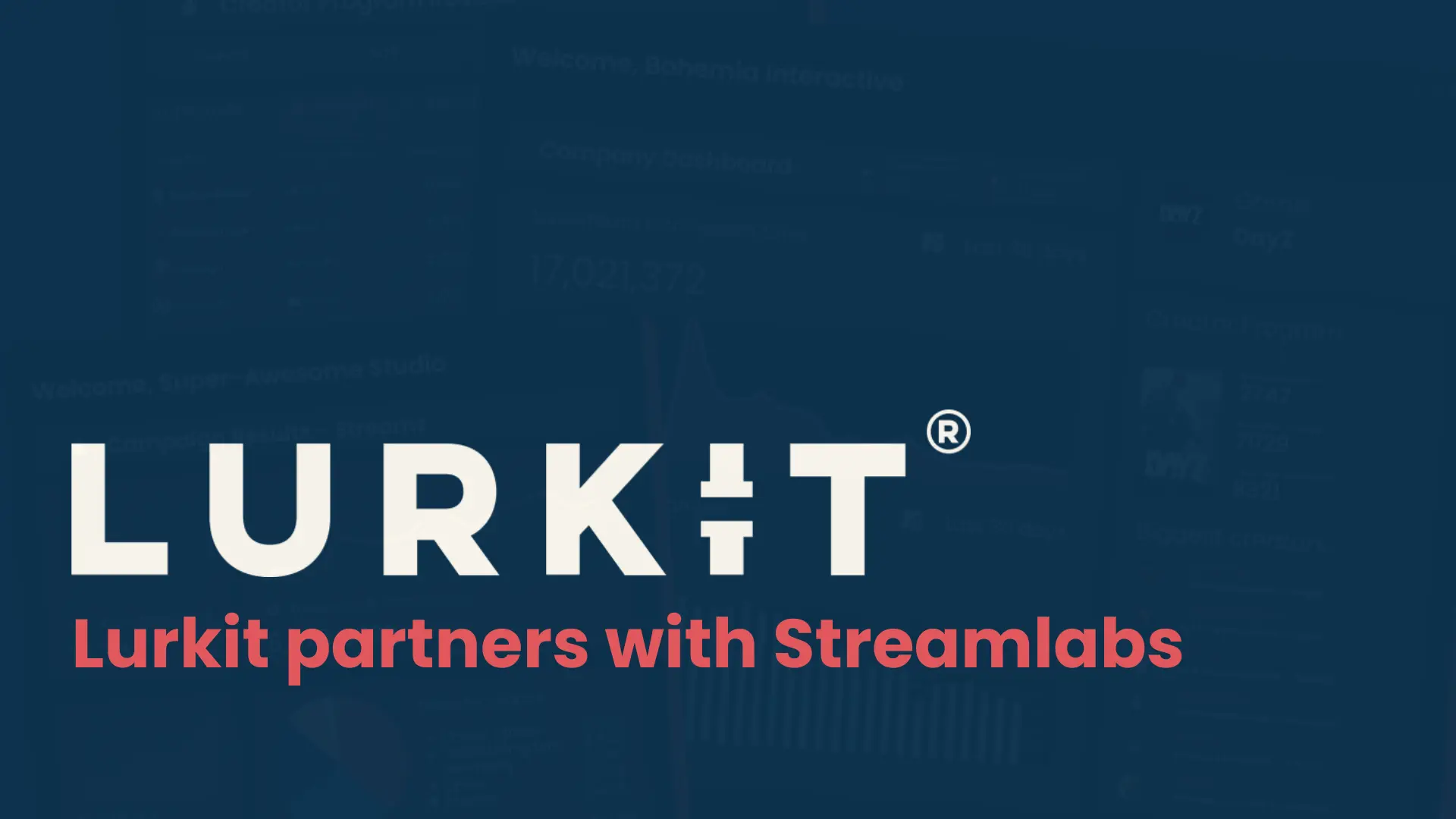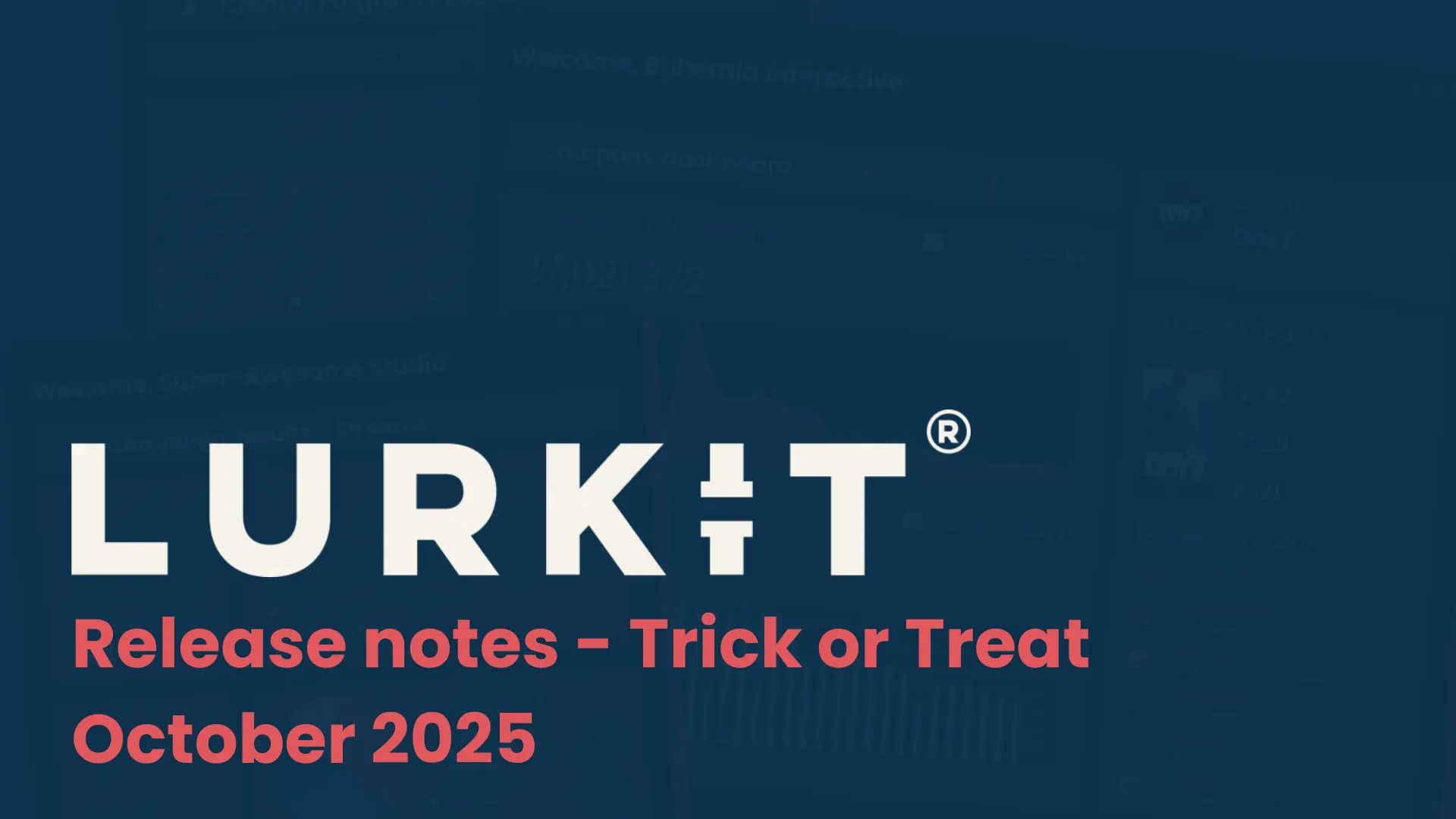The state of game marketing in 2025: What publishers & marketers need to know
A lot's going on in the games industry right now. Budgets are tight, competition is at unprecedented levels and meaningful funding feels like a thing of the past. If you’re a publisher or marketer promoting a game, these are probably the most challenging conditions you’ve ever experienced.
A quick glance at your LinkedIn feed will give you a taste of how tricky things are. But now those bad vibes are backed up by data, thanks to Bastion’s Annual Video Games Marketing Survey.
The 2025 survey gives us a snapshot of how publishers and developers are navigating these choppiest of waters. The data documents the struggles that many of you are attempting to tackle, but it also shines a light on the strategies that marketing teams are having success with.
In this post, we’ll unpack the survey’s key findings and explore what they mean for you.
Creator marketing is central to a successful launch
I can feel you rolling your eyes at that headline. A creator marketing company bigging up creator marketing? Puh-leeze. But hey, these aren’t our words, they’re the words of Bastion’s Clare Hawkins in the survey's exec summary:
Influencer marketing is the clear core strategic ingredient of successful launches in 2025. Marketers see it as the most effective way to cut through the noise, especially organic influencer strategies, now leading all other channels in perceived impact.
When asked to choose the most effective channels at achieving their objectives, respondents placed organic influencer marketing on top by a distance. As the survey reports, this is a notable shift from 2024, when paid media and paid influencer marketing were tied in first place.
Diving into how marketers split their creator spend reveals that most (54%) look to organic. 15% mainly choose to work with paid influencers, and 26% prefer a mix of both. As the survey points out, this stronger focus on organic over paid enhances the notion that earned media is increasingly the future of game marketing.
So, creators are no longer “nice to have”; they’re essential. And this sentiment is backed by the survey’s data. Over 86% of respondents said that working with influencers was either their primary strategy or something they used occasionally. Zero per cent of respondents never work with creators.
Creator marketing’s growing importance is underlined by increasing investment. 47% of marketers surveyed said that they would be increasing their influencer marketing spend over the next 1-2 years. Less than 6% reported that they were planning to decrease their budgets.
Interestingly, when asked to prioritise content types, 24% of marketers listed short-form content (TikTok, Shorts, Reels, etc.) as their top choice. This beat reviews and trailers (tied in second on 22%) and live streams (21%). These four content types were a long way ahead of advertising, guides and walkthroughs, each of which came in at less than 5%.
The big lesson from all this? If you’re not prioritizing creators, you’re doing it wrong.
Marketing teams are leaner than ever
One of the clearest takeaways is that marketing teams in general aren’t growing.
- 22% of respondents said their team had grown over the past year.
- 33% reported a decrease.
- 44% said their teams stayed the same.
This is a significant change from 2024. In that year’s survey, nearly 40% of marketers had reported growth in their teams. The number of teams cutting back is climbing.
Ominously, only 17% plan to hire in the next 12 months. Nearly 40% said they had no plans to hire, with the rest remaining undecided. For publishers, this means teams are trying to do more with less. Marketers have fewer hands on deck, but the workload remains the same or is increasing.
Our advice? Efficiency is the name of the game here. Tools and partnerships that lighten the load, whether that’s campaign automation or creator marketing platforms like Lurkit (waves), are now essential.
Budgets are tight, but agencies are in demand
The survey paints a sobering picture on budgets. Last year, 60% of respondents said they had enough budget to hit their marketing goals. This year, that number has dropped to just 36%.
The survey also quizzed marketers about their budgets for “major titles”. 81% said that they were working with an overall budget of less than 500k. In 2024, this number was 63%, demonstrating a sharp decline in marketing cash.
Yet despite shrinking budgets, agency spend is still strong.
- 39% increased agency spend this year.
- 28% decreased it.
- 33% kept it the same.
So even as teams feel constrained, they’re turning to external partners for help. Why? Because stretching a small budget requires creative solutions, and agencies usually have the expertise and experience to deliver outsized results.
Marketing teams now know that spending smarter matters more than spending bigger. Strategic partnerships, either with agencies or platforms like Lurkit, help ensure that stretched budgets go further.
What this means for publishers & developers
Looking across the survey, a few big themes emerge:
1. Discoverability!
The number one issue that most marketers are dealing with, and this isn’t going to change anytime soon. 32% of respondents cite it as their number one challenge, and almost everyone surveyed expects this to remain the case next year and beyond.
2. Lean teams, big expectations.
With smaller in-house teams, marketing teams should look towards platforms and partners that offer value and streamline execution.
3. Budgets under pressure.
Marketers are being asked to deliver more with less, making ROI and measurability more important than ever.
4. Creators at the core.
The right creators amplify campaigns, but authenticity and community alignment matter far more than raw numbers.
5. Steam as a stage.
Storefronts are now key battlegrounds for discoverability, and success there requires dedicated optimization, whether that’s game descriptions, tags, trailers or participation in events like Next Fest.
Final thoughts
Bastion’s Annual Video Games Marketing Survey 2025 confirms what many of us already feel: the games industry landscape is tougher, noisier and more competitive than ever. But it also shows that it’s not all doom and gloom. There are ways forward.
By focusing on authentic creator partnerships, targeting the right audience to build your game’s community and leveraging tools that bring efficiency to lean teams, publishers and developers can still find success.
At Lurkit, we see these themes every day. Campaigns that activate the right creators, at the right time and in the right way, consistently do big numbers.
If you’re ready to do more with less, now’s the time to get in touch.








